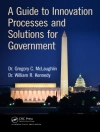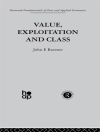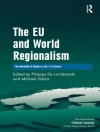Our interactive world can take a creative product, such as a Hollywood film, Bollywood song, or Latin American telenovela, and transform it into a source of cultural anxiety. What does this artwork say about the artist or the world she works in? How will these artworks evolve in the global market? Film, music, television, and the performing arts enter the same networks of exchange as other industries, and the anxiety they produce informs a fascinating area of study for art, culture, and global politics.
Focusing on the confrontation between global politics and symbolic creative expression, J. P. Singh shows how, by integrating themselves into international markets, entertainment industries give rise to far-reaching cultural anxieties and politics. With examples from Hollywood, Bollywood, French grand opera, Latin American television, West African music, postcolonial literature, and even the Thai sex trade, Singh cites not only the attempt to address cultural discomfort but also the effort to deny entertainment acts as cultural. He connects creative expression to clashes between national identities, and he details the effect of cultural policies, such as institutional patronage and economic incentives, on the making and incorporation of art into the global market. Ultimately, Singh shows how these issues affect the debates on cultural trade being waged by the World Trade Organization, UNESCO, and the developing world.
Tabla de materias
List of Figures
List of Tables
Preface
List of Abbreviations
Introduction: The Creative Voice and Cultural Identity
1. Cultural Politics and Global Anxieties
2. Value, Markets, Patronage
3. Culture Wars
4. UNESCO and the Europeans
5. Cultural Patrons in the Developing World
6. Culture by Any Other Name
7. The Creative Voice and Cultural Policy
Notes
Works Cited
Index
Sobre el autor
J. P. Singh is professor of global affairs and cultural studies at George Mason University. His books include
UNESCO: Creating Norms in a Complex World;
International Cultural Policies and Power;
Negotiation and the Global Information Economy;
Information Technologies and Global Politics (with James N. Rosenau); and
Leapfrogging Development? The Political Economy of Telecommunications Restructuring.












